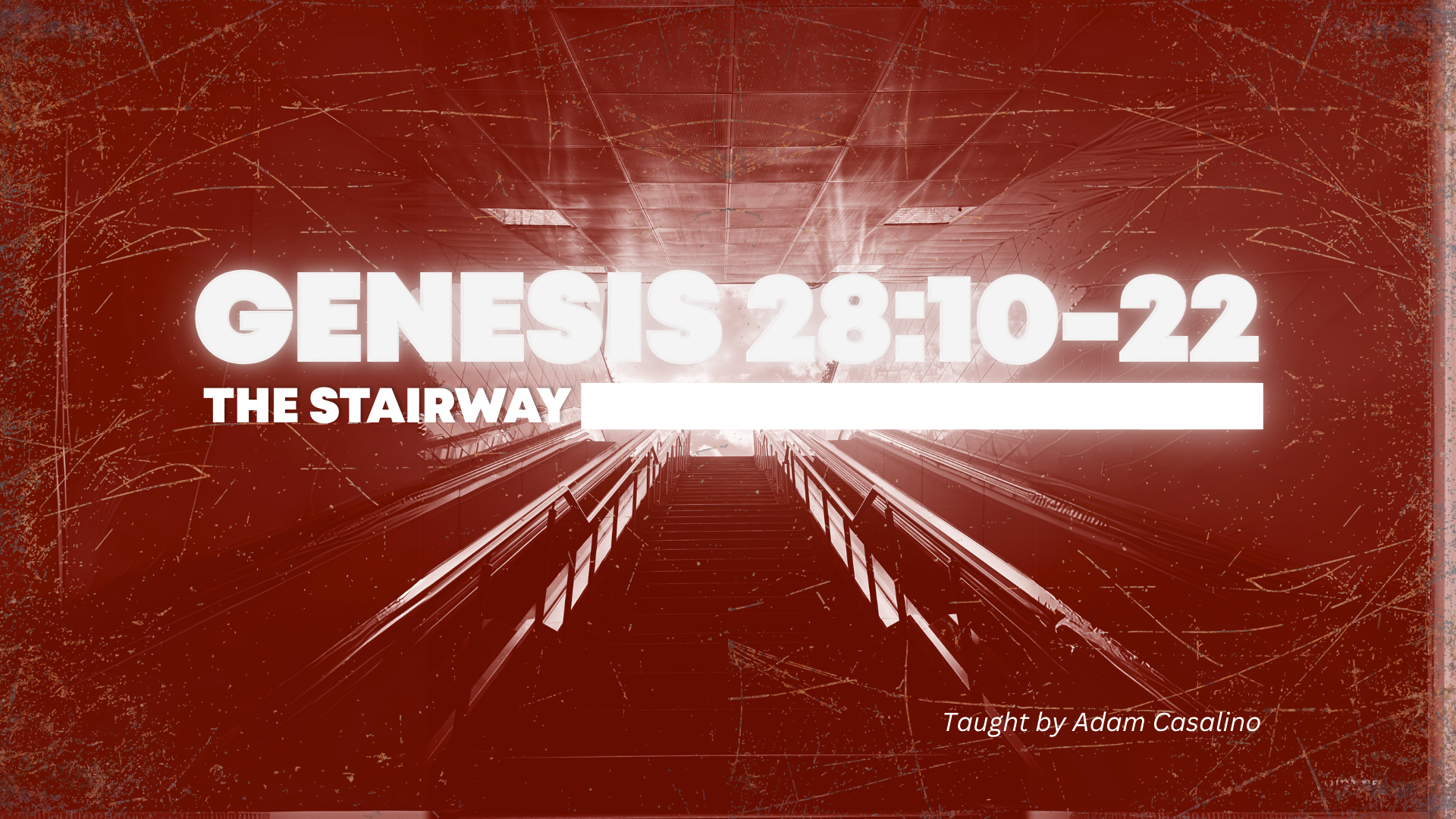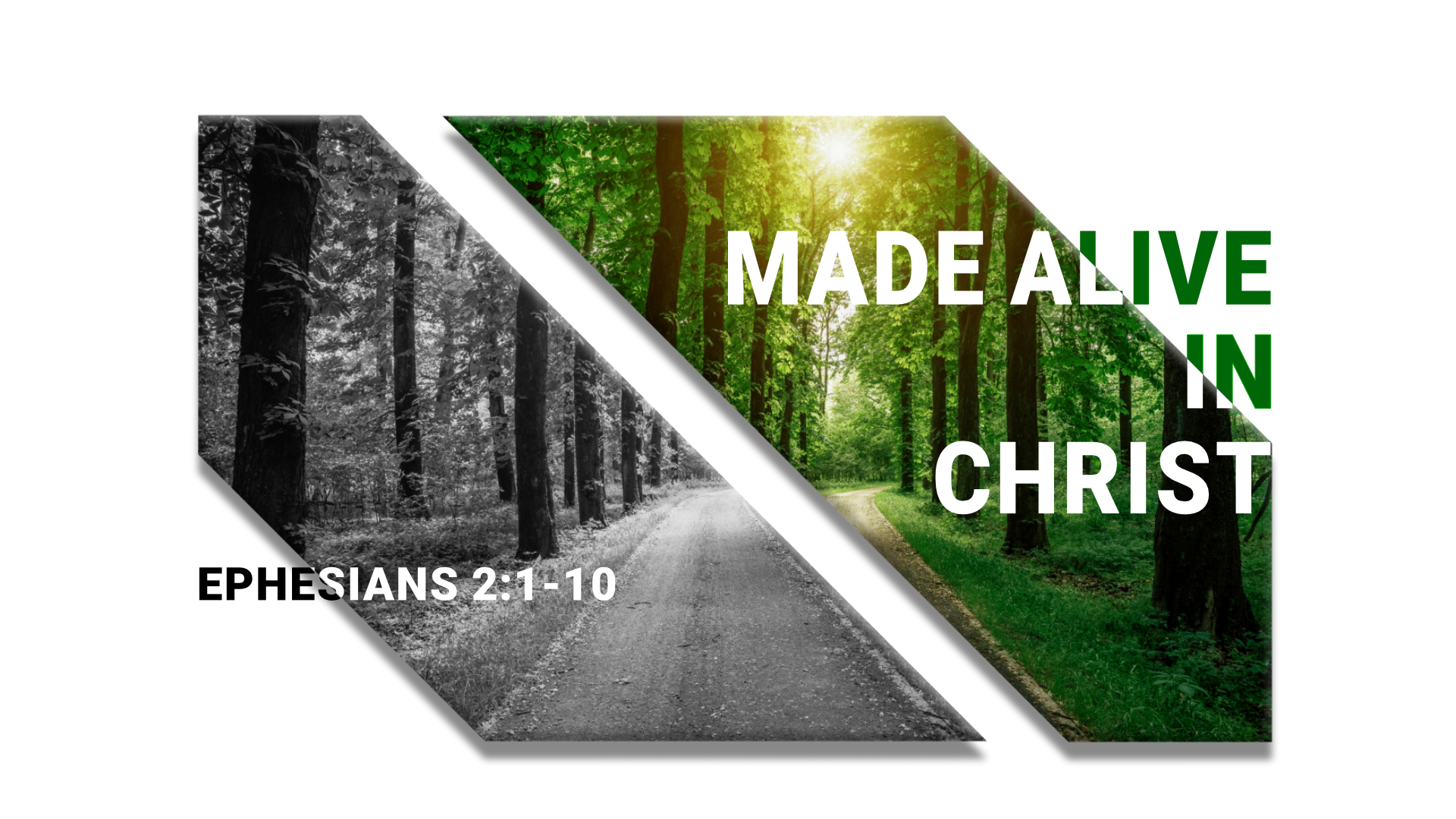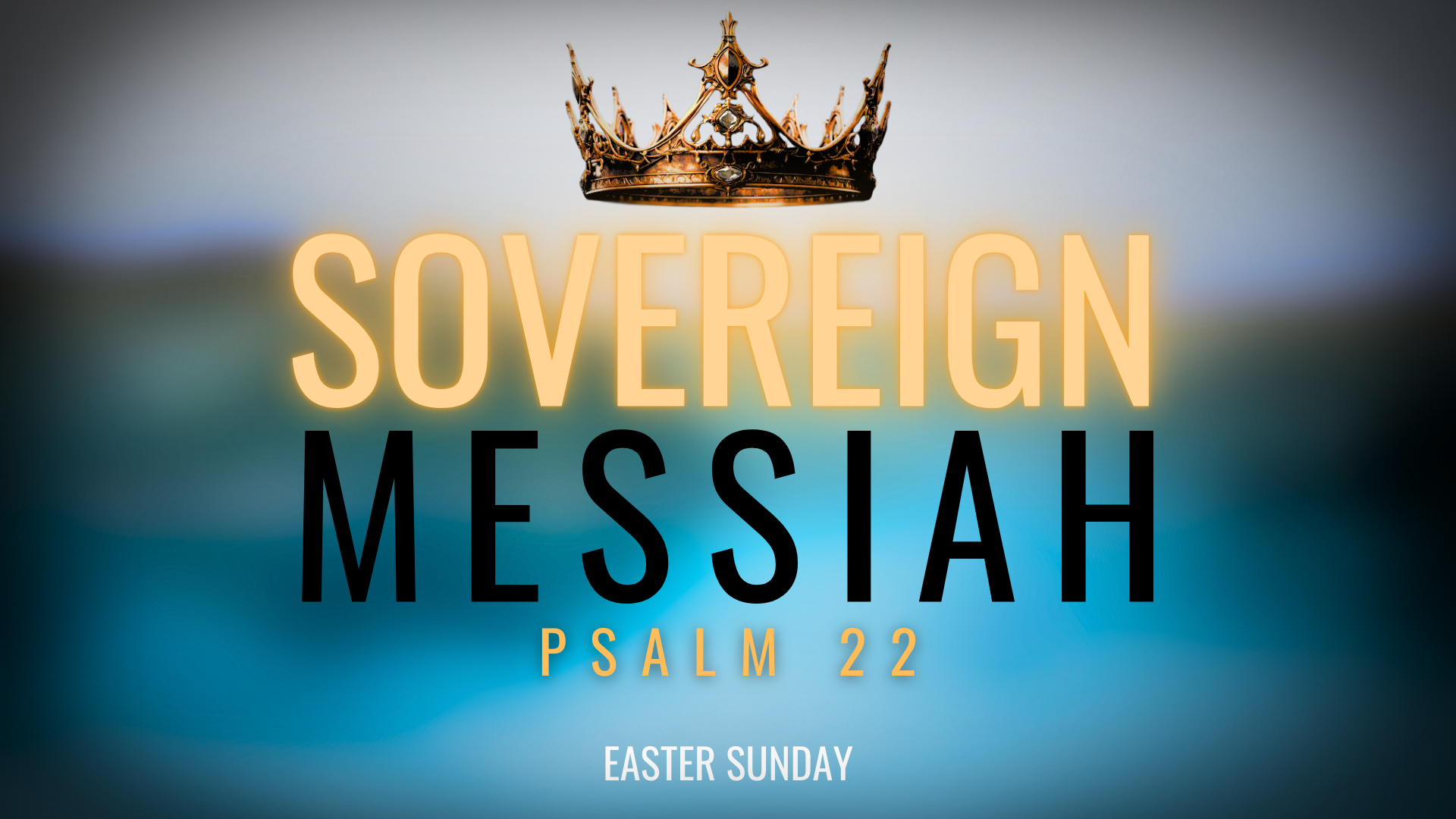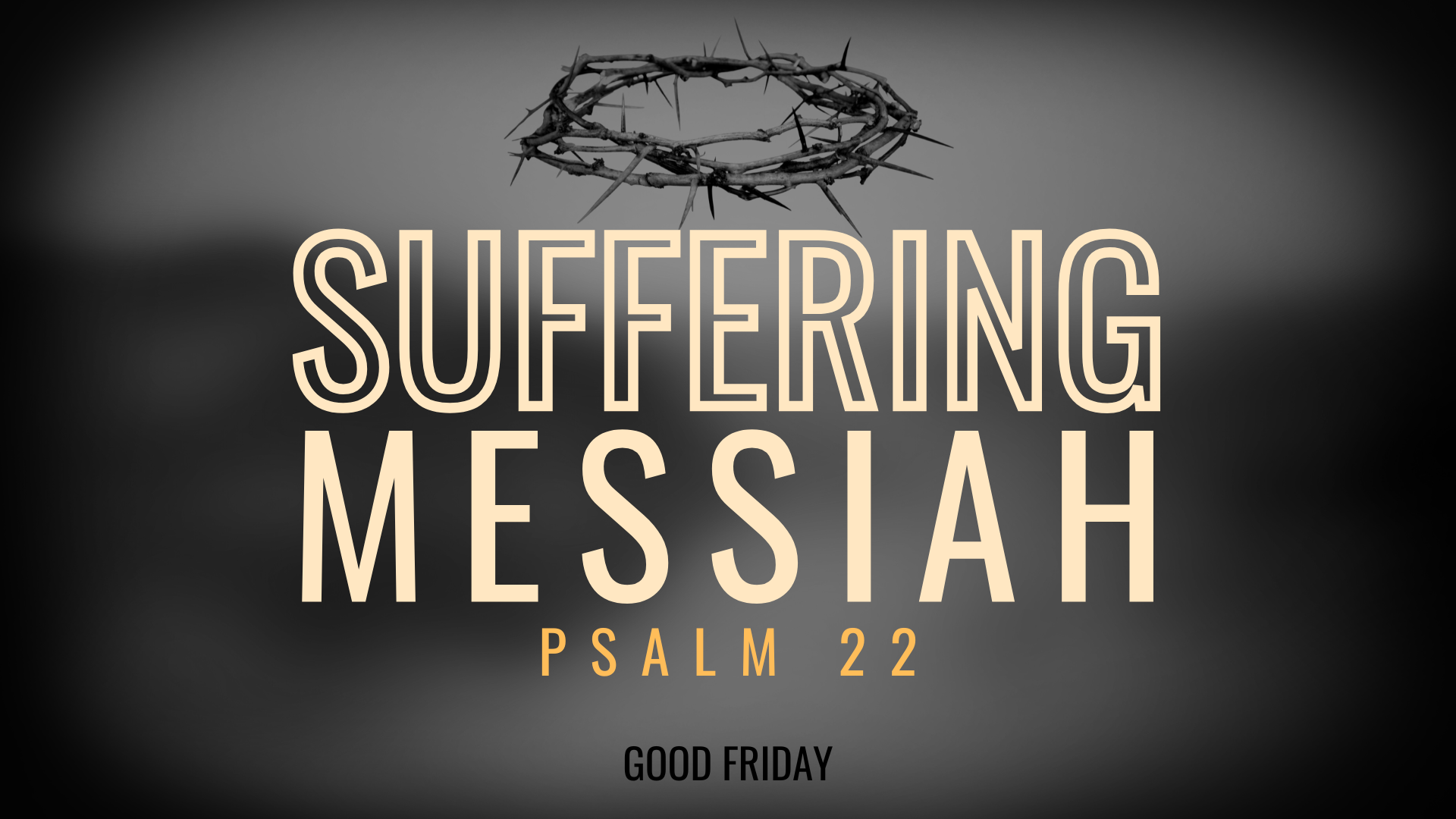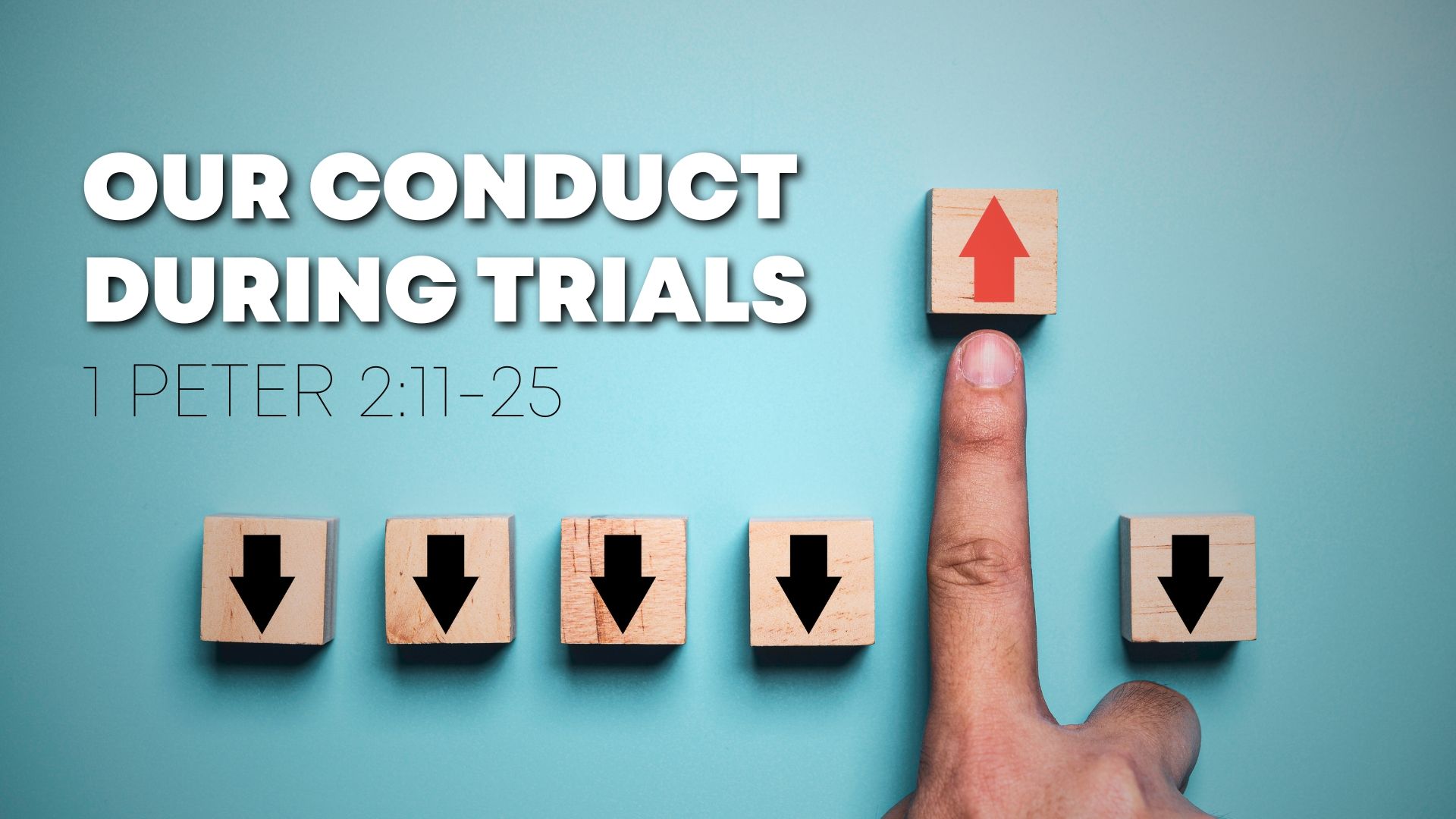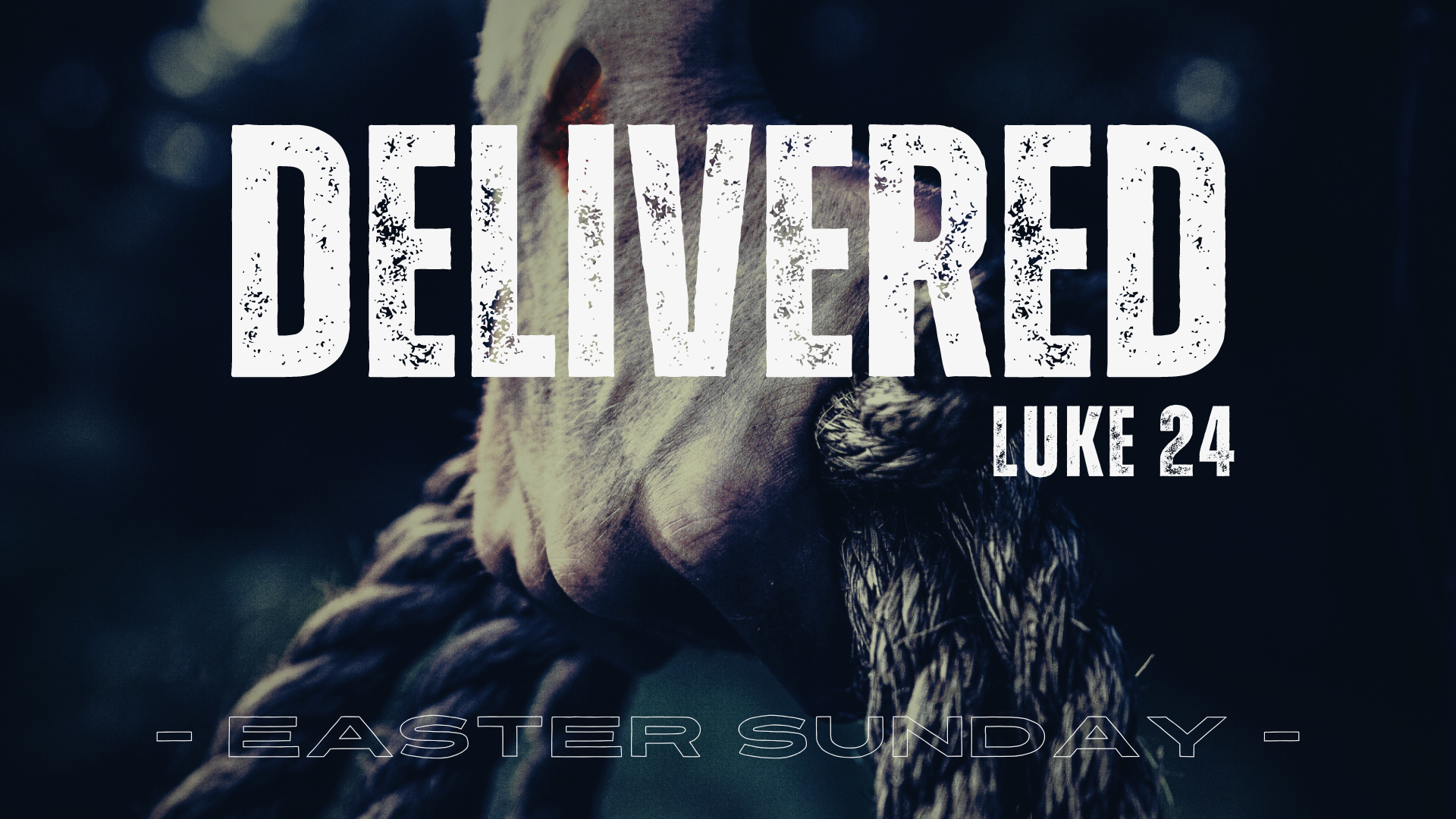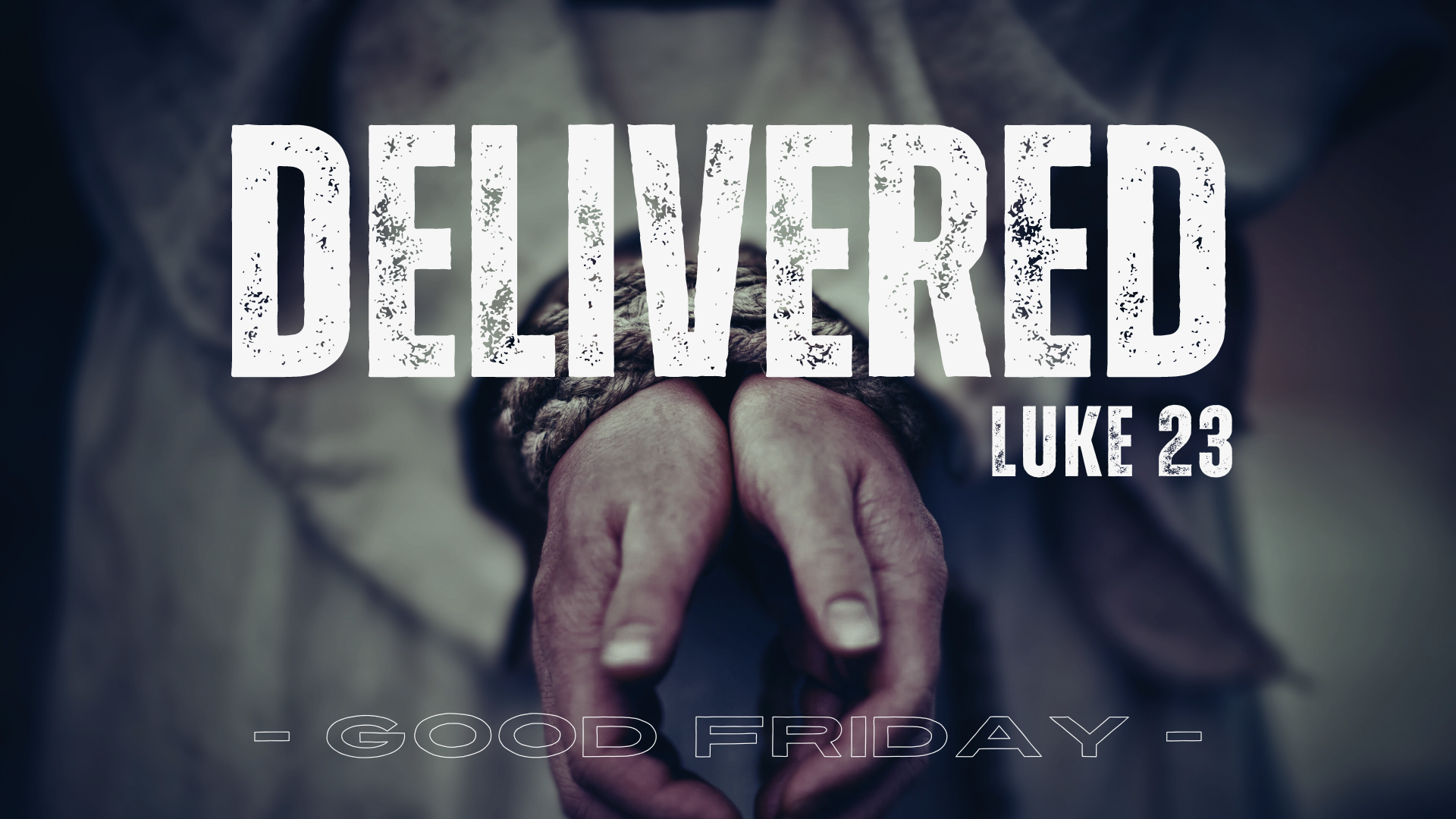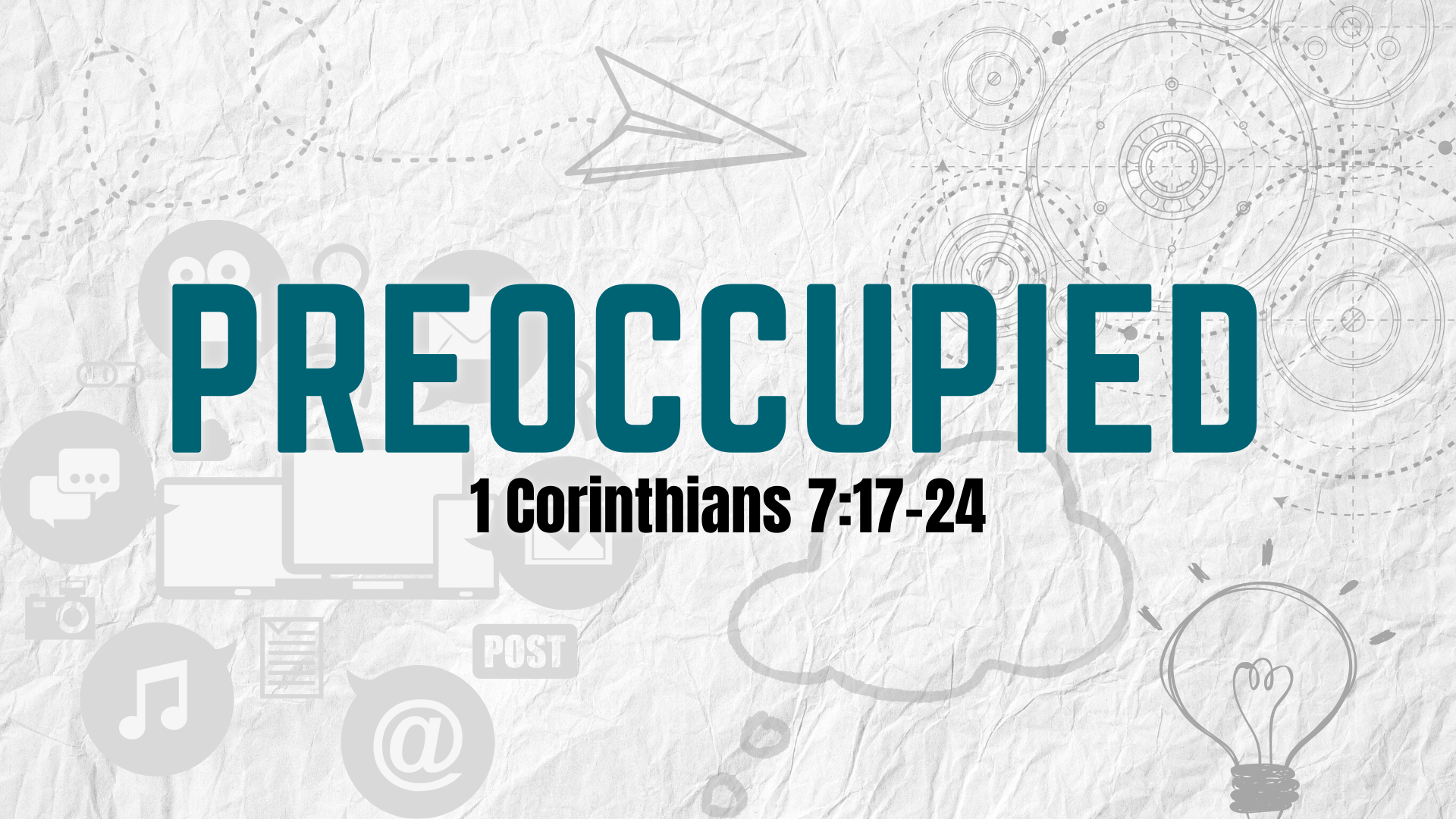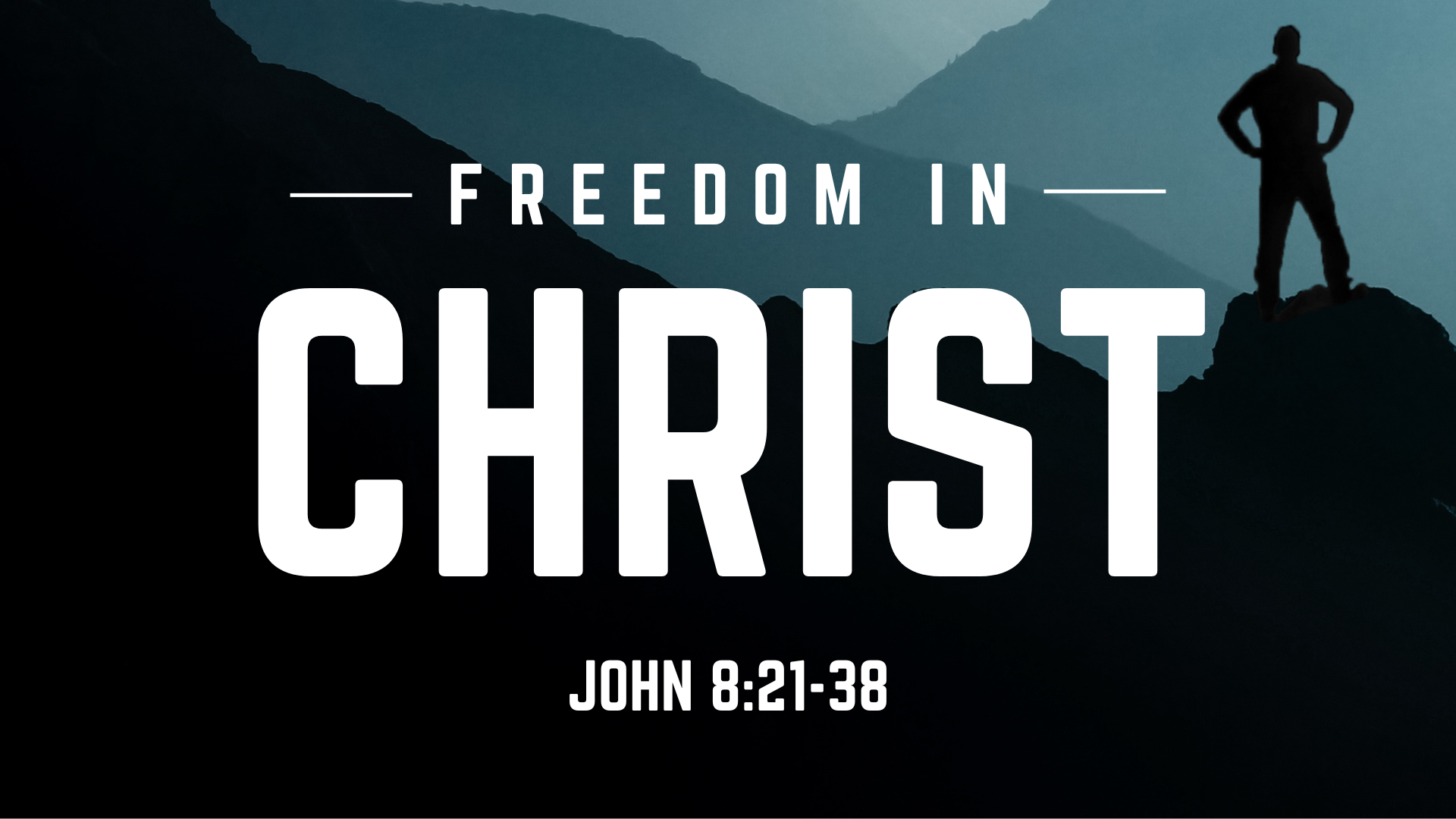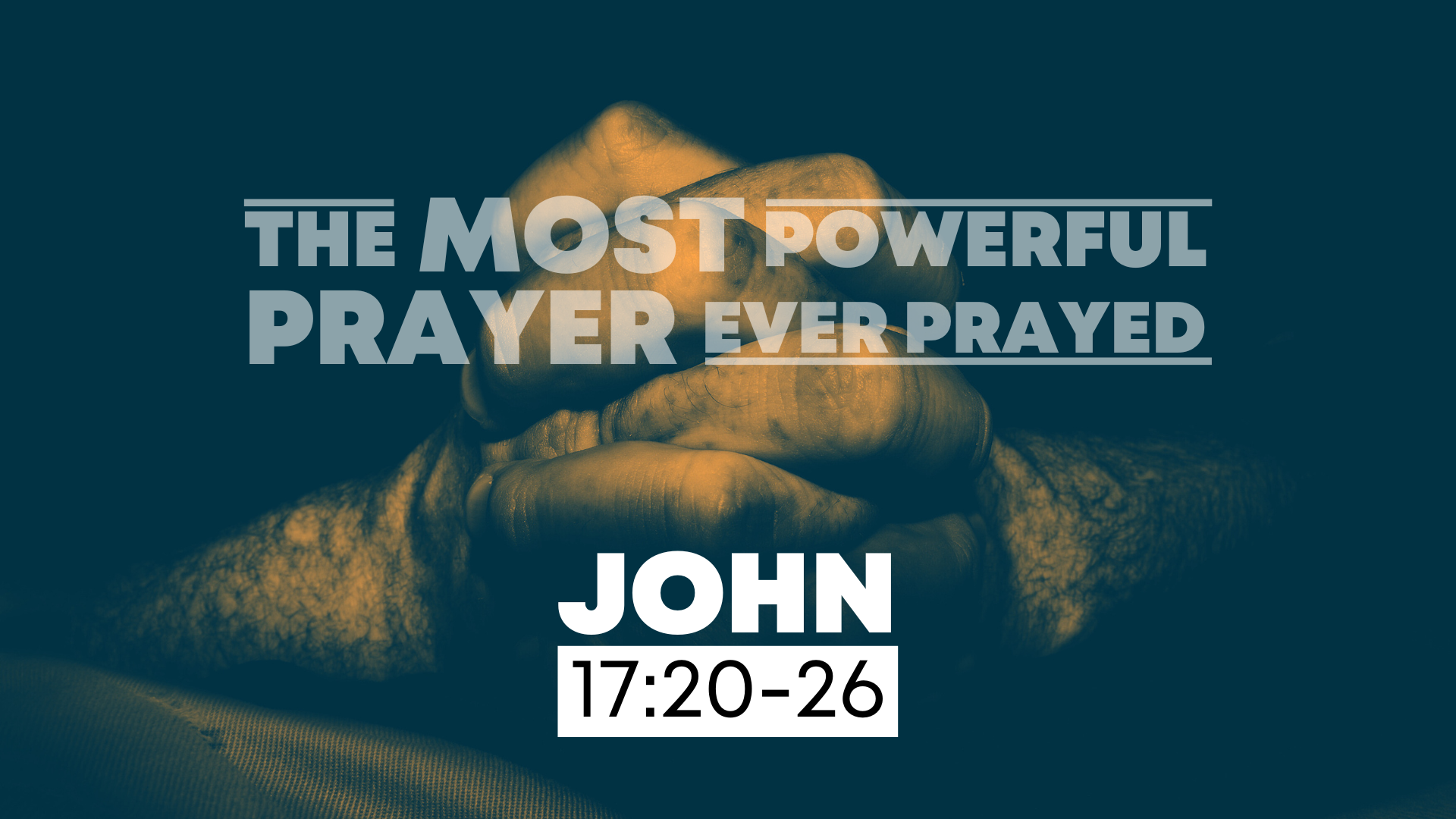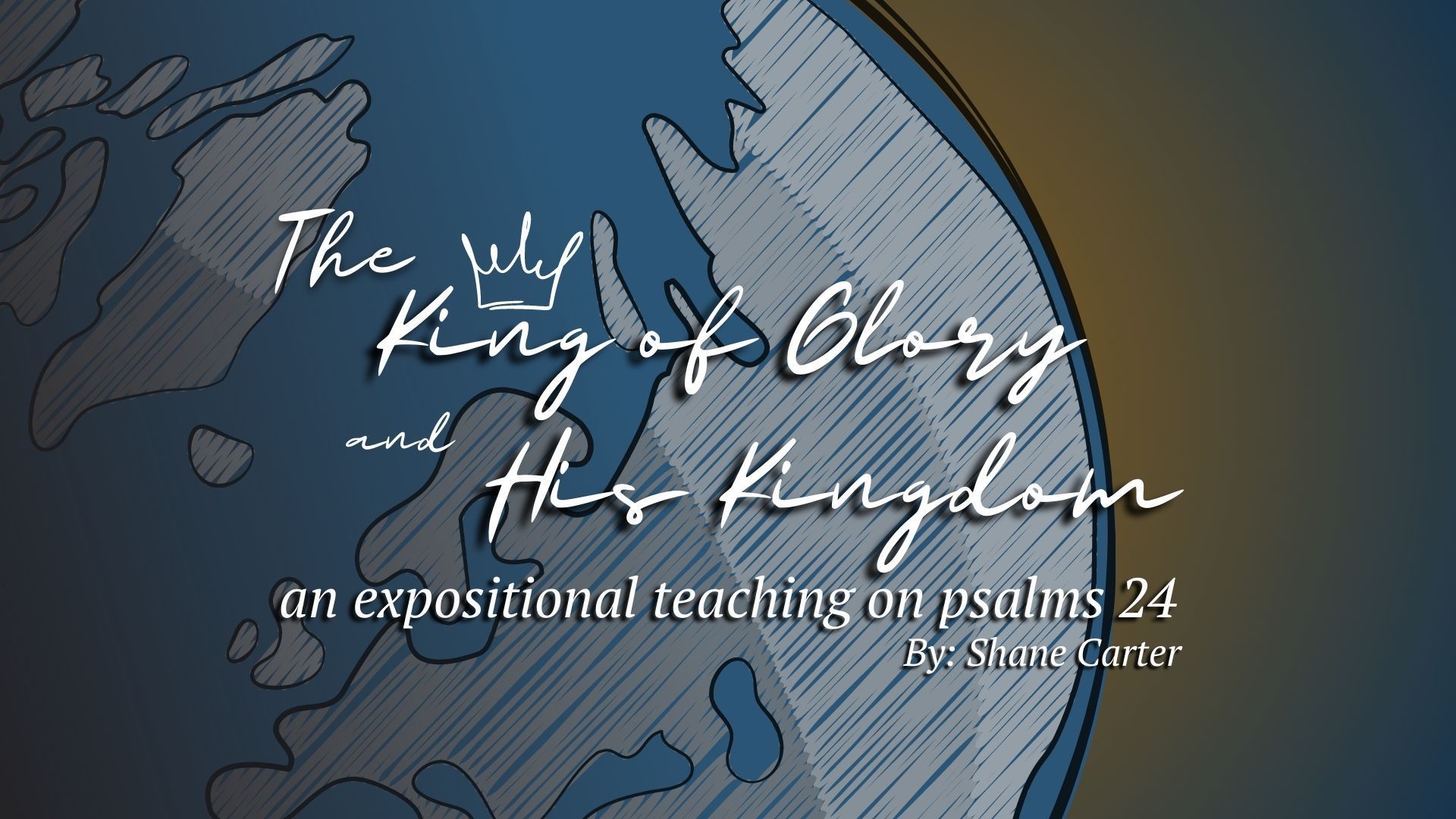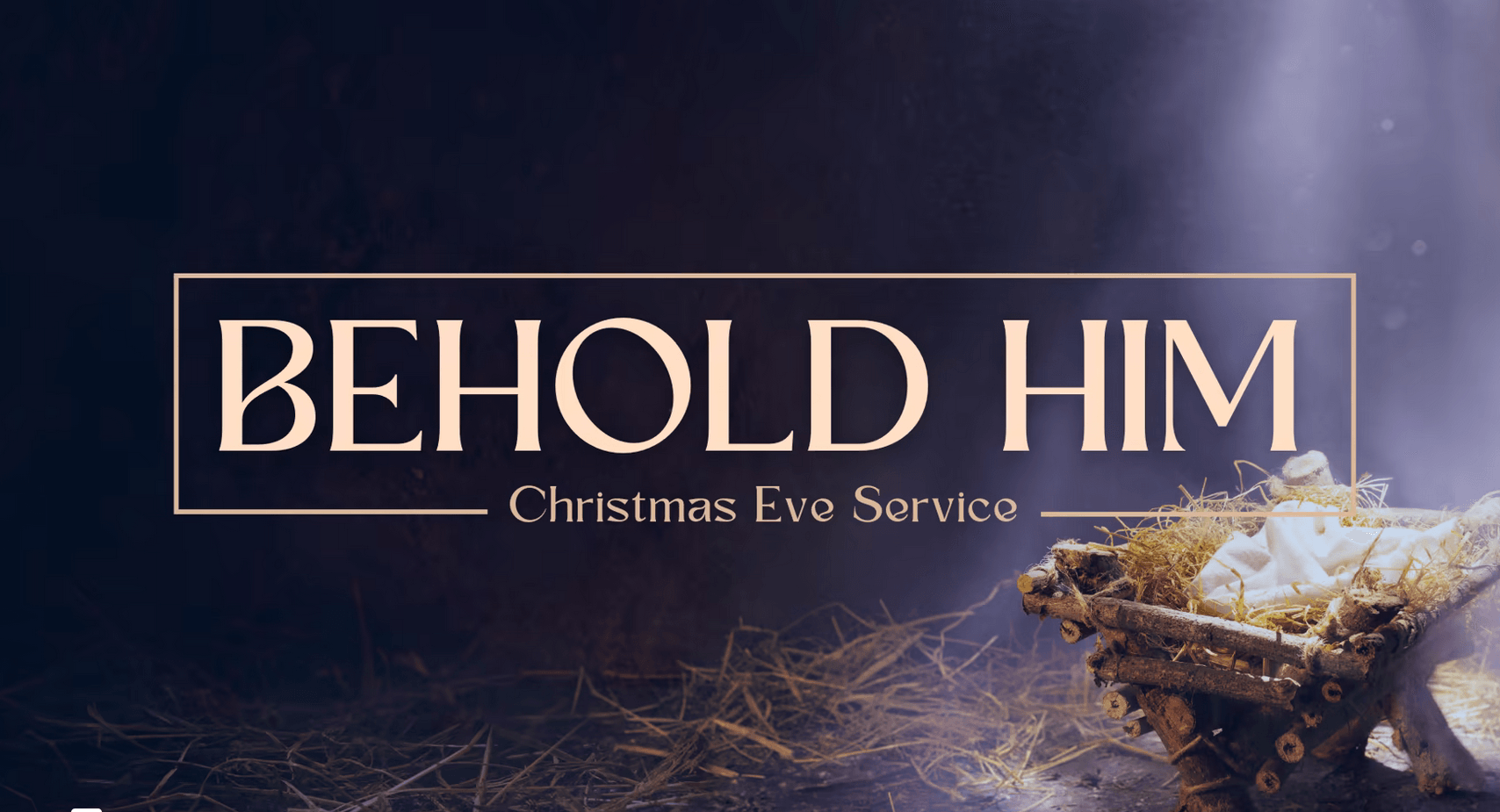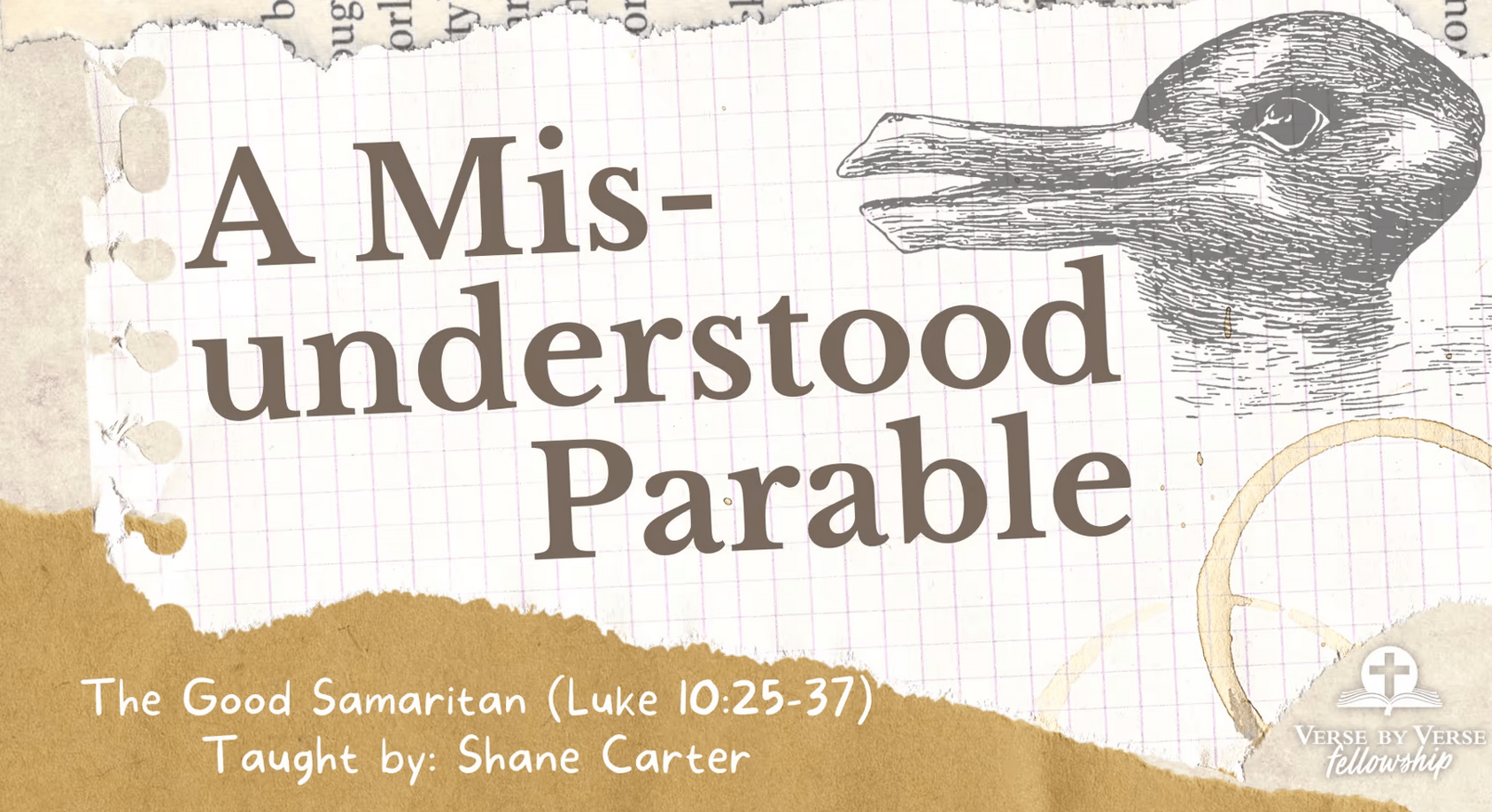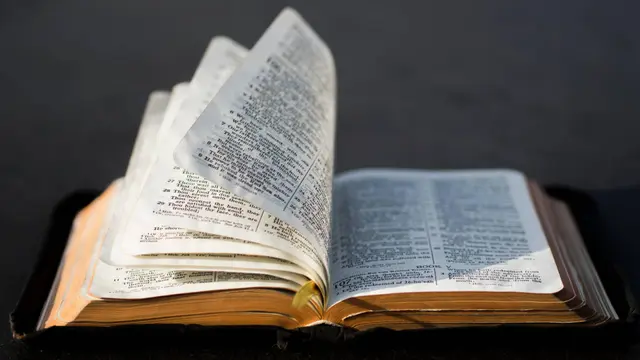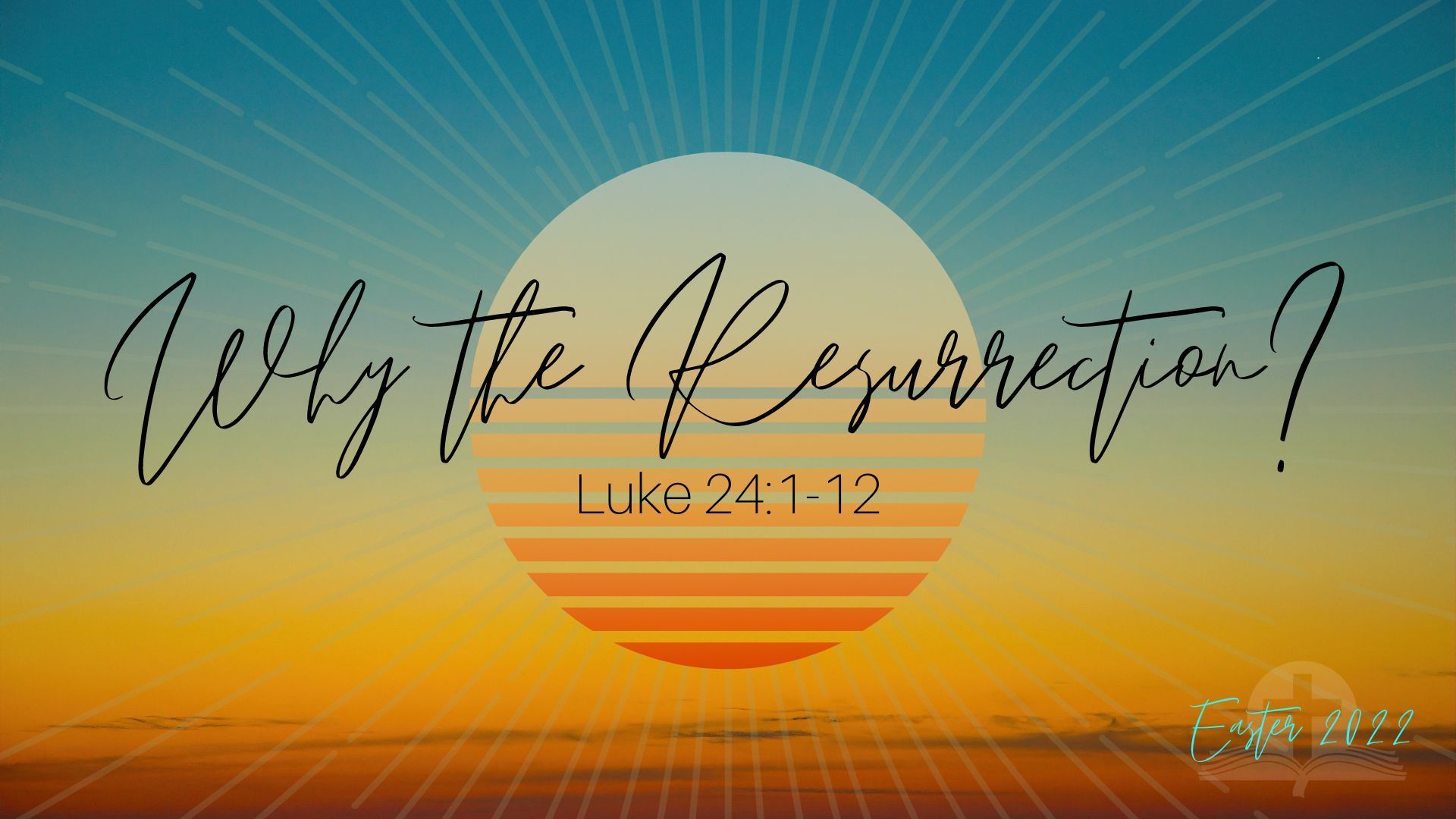MANUSCRIPT
King David’s King
Psalm 110
1 The LORD says to my Lord: “Sit at my right hand, until I make your enemies your footstool.” 2 The LORD sends forth from Zion your mighty scepter. Rule in the midst of your enemies! 3 Your people will offer themselves freely on the day of your power, in holy garments; from the womb of the morning, the dew of your youth will be yours. 4 The LORD has sworn and will not change his mind, “You are a priest forever after the order of Melchizedek.” 5 The Lord is at your right hand; he will shatter kings on the day of his wrath. 6 He will execute judgment among the nations, filling them with corpses; he will shatter chiefs over the wide earth. 7 He will drink from the brook by the way; therefore he will lift up his head.
There’s this really great moment in the OT right before David kills Goliath that David tries to put on Saul’s armor. And it’s a comical moment, because David tries to walk around in this armor, and he can’t. David says, “I cannot go with these, for I have not tested them” (1 Sam 17:39). And you get the sense that this armor was too big, too cumbersome, and too overwhelming for young David.
Well Psalm 110 is a lot like that. What’s described here in Psalm 110 can’t possibly be used for David. It’s too big, it’s too cumbersome, and it’s too overwhelming for King David. There’s got to be another king, another “priest in the order of Melchizedek,” that David is describing in this passage.
And it’s interesting because a lot of Psalms like Psalm 110, royal psalms, they start off talking about David the king and how awesome he is. And they talk about how he’s going to be a powerful king and a just king. And somewhere about half-way through the Psalm you get the sense that maybe David can’t live up to the hype of that Psalm. And maybe, just maybe, the Psalm is pointing forward to someone other than David, a true and better David.
But Psalm 110 is different. Psalm 110 doesn’t waste any time talking about King David directly. Right off the bat, the text moves away from David. And that starts in verse 1, where David says, “The LORD (Yahweh) says to my lord.” David says, “my lord.” Who is David’s “lord”? Isn’t David the King? Isn’t he the most powerful person in the Kingdom? How can Yahweh be saying something to David’s lord?
So we know right away that David’s not writing about himself in this Psalm. He’s writing about an even better King of Israel, a king who will be oodles and oodles better than King David!
-----------------------------------------------------------------------------------------
The title of this message today is “King David’s King.” Let’s talk about this “better than David” King. I’ll give you four descriptions of him in this Psalm. Here’s number one. First of all…
David describes the coming of a…
1. Divine Master (110:1)
Now just a few technical things here as we get going in Psalm 110. This is something you’ve got to know in order to understand this Psalm. First of all, there is that statement: “A Psalm of David” in capital letters in your Bible.
A PSALM OF DAVID.
Does everyone see that? That, just so you know, is part of the Hebrew Scripture. In the ESV, there’s a section heading in Psalm 110 that says, “Sit at my Right Hand.” If you have a different version of the Bible, there might be a different section heading. That section heading is not part of the inspired Hebrew Scripture. But “A Psalm of David” is not a section heading from the translators. That’s part of the psalm. And it’s absolutely essential that you appreciate that in Psalm 110. David, inspired by the Holy Spirit, was the human author of this Psalm. If you don’t get that, you can’t understand this Psalm.
The second technical thing that you need to understand is that the two words for Lord in verse 1 are different Hebrew words. I know this is confusing in English: “The LORD said to my Lord.” In Hebrew it says, “Yahweh said to my Adon.”
Yahweh is what’s called the Tetragrammaton in Hebrew. It’s the four-Hebrew-lettered name for God (Tetragrammaton means “four letters”) meaning “I AM.” In the Middle Ages this was pronounced “Jehovah”, but I prefer to use the ancient pronunciation “Yahweh.” And Adon or Adoni is the Hebrew word for our English word “lord” or “master.”
And thirdly, you need to know that the word translated “says” here is the Hebrew word that typically is translated “oracle” (נְאֻם). This is a rare word in the Psalms, which clearly indicates that something more than just the Davidic Kingdom is being dealt with here.
So let’s put this all together and let me give you another way to read verse one. “A PSALM OF DAVID. Yahweh declares an oracle concerning my [David’s] master.” Everyone got that? “Yahweh declares an oracle concerning David’s master.” What’s the oracle? Here it is.
“Sit at my right hand, until I make your enemies your footstool.”
Wow. Whoever this “master” is, he must be a pretty impressive person. He sits at the right hand of Yahweh. Yahweh himself fights for him and makes his enemies a footstool. That’s Hebrew language for God is going to whomp his enemies.
And it wasn’t just the Hebrews who used this image. Here’s a replica of King Tut’s throne. King Tut lived roughly 300 years before David in Egypt. Sanja and I saw an exhibit of King Tut at The Field Museum a few years back. And if you zoom in on the next slide, you can see that there are people drawn on King Tut’s footstool. This is a picture of Egypt’s enemies that are bound and under his feet.
In his commentary on Psalms, Bruce Waltke writes, “On the young Tutankhamen’s footstool are representations of foreign captives, prostrate, with their hands behind their backs, to depict symbolically his enemies as already bound and under his feet. From the victor’s perspective it connotes his disdain and judgment; from the victim’s perspective it connotes shame and humiliation.” David says here, “That’s what Yahweh is going to do for my master.” He’s going to destroy and humble his enemies so much, that this master will be able to, metaphorically-speaking, put his feet up on them as a sign of domination. Who is David’s talking about here? Who’s this master that David is talking about? DON’T ANSWER THAT YET! Let’s keep going.
-----------------------------------------------------------------------------------------
So first of all, David describes the coming of a “Divine Master.” Now in verse 2, he describes a…
2. Divine King (110:2-3)
David writes in verse 2,
2 The LORD [YAHWEH] sends forth from Zion your mighty scepter. Rule in the midst of your enemies!
Zion is the ancient name for Jerusalem. That’s the place where the OT kings reigned. David established Jerusalem as home-base for the Kings of Israel. And so, David now says that Yahweh is sending forth from Zion a mighty scepter for “his” Divine Master.
The scepter or rod is an ornamental staff that’s used as a symbol of governmental authority. This Divine King will rule over Zion. He will rule in the midst of his enemies. He will rule conceivable even over David. This is King David’s King. This is King David’s Master. King David is this guy’s slave and subject.
Then David writes in verse 3 about this King…
3 Your people will offer themselves freely on the day of your power, in holy garments; from the womb of the morning, the dew of your youth will be yours.
In other words, this King, this Master, will never grow old or weary. This King will never lose strength or get tired of ruling. And people, holy people, will flock to him to be ruled by him.
This is conjecture on my part, but I actually think that this psalm was written late in David’s life after he had experienced a few disappointments… after he had aged a little bit. In fact, there’s a scene late in David’s life, in the post-Bathsheba era of his life, when he went off to battle with his army and he almost got killed because he was too weak to wield the sword like he used to. And after that incident, David’s men swore to him that they would never let him go out to battle with them again (2 Sam 21:17). I can imagine David coming home after that incident thinking to himself, “If only there was a King who never grew old, who never lost strength, and who had “the dew of his youth” always with him!”
Remember too that when David got old, he had to lay down with the virgin Abishag to keep warm (1 Kgs 1:1-4). It’s actually a sad situation. David’s got one foot in the grave. It’s an all too familiar situation on this side of eternity. If only there was a king who could escape the effects of aging in this world!
And also, David says about this Divine King, the people will offer themselves freely to him. David had ruled long enough to know that people were fickle. His own son, Absalom, usurped the throne from David. Joab, the leader of David’s army, was a man of blood who was constantly manipulating situations behind David’s back. William Shakespeare wrote that famous line, “Uneasy lies the head that wears the crown!” David knew all about that.
You know whenever I see King Charles III, the new King of England, I can just see this heaviness on his face. Maybe it’s because he’s still mourning the death of his mother, Queen Elizabeth. But his face just looks long and wearied. And I think to myself, “Uneasy lies the head that wears the crown!” And Charles isn’t even a real monarch. He’s a constitutional monarch.
King David knew all about the heaviness of the crown. And yet David sees something different in Psalm 110. He says about this future Divine King, “your people will offer themselves freely in holy garments.” This King’s people serve him freely. And this King’s people are clothed in holiness! This sounds great, right? Who wouldn’t want to be part of a kingdom like that?
And I know how this makes us feel. We’re Americans. The Last King of America was King George III. We dressed up like Indians in 1773 and took King George’s tea and threw it in the Boston Harbor. We protested King George’s taxation without representation, even though (just an FYI) we were one of the least taxed people in the history of the world. And also, we had way fewer taxes back then then we do now! Also, you should probably be aware that King George was way more religiously pious than our beloved Thomas Jefferson.
But still we don’t like Kings in America! And I’m right there with you. I heard Prince Harry say once that responsible people should only have two or less children because of the burden that children are to our planet. And it made me so angry I wanted to go get some tea and throw it in the ocean. “Who is this guy, this pretender, who thinks he can lecture us on having children?”
So yeah, we struggle with kingship here. But what if we had a perfect King? What if we had a King who could bear the weight of ruling and had earned the right to rule over the world? And what if we had a King who subjected all of his enemies, and ruled the world with righteousness and equity, and all of his people served him willingly and in complete holiness?
-----------------------------------------------------------------------------------------
Write this down as #3. This person that David describes is more than a Divine Master. He’s more than a Divine King. He’s also a …
3. Divine Priest (110:4)
Here’s another term we don’t like in America. We don’t like kings, and typically, we don’t like priests. Because historically, priests were mediators between us and God. We don’t like mediators. We want access to God on our own terms.
And also, we look at the OT and think about all the failures of the priests. It’s just like the failures of the kings. Failure after failure after failure. We look at priests and kings throughout modern history, and it’s more of the same. More failures. But watch how David describes this priest in verse 4.
4 The LORD [YAHWEH] has sworn and will not change his mind, “You are a priest forever after the order of Melchizedek.”
To that you might say, “Melchize-who?” “What’s he talking about here?” “And why does Yahweh swear to this Divine Person that he is a priest forever in the order off Melchizedek? And who is Melchizedek anyway?”
Well let me explain this for you. In the Book of Genesis, there is this mysterious King-priest who appears to Abraham whose name is Melchizedek. “Melek” means king in Hebrew. “Tsedek” means righteous. He was a “King of Righteousness.”
And what happened is that Abraham went to rescue his nephew Lot and a bunch of other people with a small army he cobbled together. And after winning a battle, he returned back to camp with a lot of plunder. And after returning, these two kings come out to congratulate him: 1) the King of Sodom and 2) Melchizedek, the King of Salem. And the King of Sodom says to Abraham, “thanks for rescuing our people, you can keep the plunder.” And Abraham basically rebukes this wicked king and says, “thanks but no thanks. I don’t want anyone thinking I got rich or was blessed by your gifts. I want God to get the credit for this.”
But there’s this other king there too, Melchizedek. And this king brings out bread and wine to Abraham. He blesses Abraham. And Abraham gives him a tenth of everything he has. And this guy Melchizedek is also called in Genesis 14 a “Priest of God Most High.” But he has no recorded history. He has no lineage in the Bible. He’s just this mysterious priest-king who shows up out of nowhere as the King of Salem (“salem” by the way means “peace” in Hebrew – שָׁלוֹם). Salem later is called “Jeru-salem.” So Melchizedek was this ancient King of Jerusalem. He’s this mysterious King of Peace. He’s this mysterious King of Righteousness. And he’s never heard of again in the OT until 1,000 years later when David writes Psalm 110.
Now here’s what D.A. Carson says about Psalm 110. Here’s his conjecture about Psalm 110. He said that the Israelite kings were required to know the Book of the Law inside and out. In fact, they had to write it out their own personal copy of the Law and read it daily (Deut 17:14-20).
14 “When you come to the land that the LORD your God is giving you, and you possess it and dwell in it and then say, ‘I will set a king over me, like all the nations that are around me,’ 15 you may indeed set a king over you whom the LORD your God will choose. One from among your brothers you shall set as king over you. You may not put a foreigner over you, who is not your brother. 16 Only he must not acquire many horses for himself or cause the people to return to Egypt in order to acquire many horses, since the LORD has said to you, ‘You shall never return that way again.’ 17 And he shall not acquire many wives for himself, lest his heart turn away, nor shall he acquire for himself excessive silver and gold. 18 “And when he sits on the throne of his kingdom, he shall write for himself in a book a copy of this law, approved by the Levitical priests. 19 And it shall be with him, and he shall read in it all the days of his life, that he may learn to fear the LORD his God by keeping all the words of this law and these statutes, and doing them, 20 that his heart may not be lifted up above his brothers, and that he may not turn aside from the commandment, either to the right hand or to the left, so that he may continue long in his kingdom, he and his children, in Israel.
So David, as King of Israel, had read Genesis several times. And he knew all about Melchizedek. So possibly, one day, as David was doing his morning devotions, he came across Genesis 14 and this mysterious priest-king. And David says to himself, “Wait a second, he’s a king and a priest. How can that be? You can’t be both.” The priests came from the Levites, and so if you weren’t a Levite you couldn’t be a king. And David was from the tribe of Judah, so he could never be a priest. In fact when kings usurped the priests, there were stiff consequences. When King Uzziah tried to burn incense to the Lord, he was struck with leprosy (2 Chr 26:16-23). When Saul offered a sacrifice to the Lord instead of waiting for Samuel, he was rebuked by Samuel (1 Sam 13:1-15).
But in the Bible, there tucked away in Genesis was this mysterious Priest-King named Melchizedek. And wouldn’t you know, just like David, this guy was King over Jerusalem. And Abraham gave him a tenth of all that he had! Father Abraham did this!
So D.A. Carson says that as David was thinking this out, this great oracle was given to him by God. And it has to do with a coming King, a coming Master, a coming Priest like Melchizedek. But he won’t be a Levitical priest. No, he’ll be a Melchizedekian priest. Wow! And he’ll be a “forever” priest. Yahweh swears it.
4 The LORD has sworn and will not change his mind, “You are a priest forever after the order of Melchizedek.”
Now, who are we talking about here? Who’s this priest-king in the order of Melchizedek? WAIT! WAIT! DON’T ANSWER THAT YET! We’re not quite done yet. Let’s keep going.
-----------------------------------------------------------------------------------------
Write this down as #4. Not only does David describe this coming Divine Master… not only does he describe this coming Divine King… not only does he describe this coming Divine Priest… here’s the last thing. David also describes this coming…
4. Divine Warrior Judge (110:5-7)
We don’t like judges in America either… unless it’s Judge Judy. We don’t like judges and we definitely don’t like judgmentalism. That’s the worst! I heard the other day that John 3:16 used to be the most popular verse in America. It’s not anymore. It’s Matthew 7:1. “Judge not lest you be judged.” In fact, the worst thing you can be called in our modern world is “judgy.”
We don’t like judges in America. But watch this, church. You’re going to like this. David describes a whole different kind of judge here—a warrior judge. This is good. Look at verse 5.
5 The Lord is at your right hand;
Now, be careful here. That “Lord” in verse 5 is not “Yahweh.” That’s Adon. That’s the Master-King-Priest that sits at Yahweh’s right hand. Remember verse 1. Yahweh said, “Sit at my right hand, until I make your enemies your footstool.” Now in verse 5, this Adon figure is still at Yahweh’s right hand, but Yahweh’s not fighting for him. He’s fighting for himself.
David writes…
he will shatter kings on the day of his wrath. 6 He will execute judgment among the nations, filling them with corpses; he will shatter chiefs over the wide earth.
Wow, this is not your typical judge! This is not Queen Elizabeth II either. It’s more like Queen Elizabeth I. But this is way beyond her. This is a Warrior-King. This is someone you don’t want to trifle with.
It’s funny how sometimes people come to Psalms looking for that tranquil, inspiring, “pick-me-up” passage. And sometimes, in the Psalms, it is tranquil. “The LORD is my shepherd... He leads me beside still waters.” But it’s not always like that. And sometimes it starts out really tranquil, like something you would post on Instagram. But then all of a sudden it gets less tranquil.
6 He will execute judgment among the nations, filling them with corpses; he will shatter chiefs over the wide earth.
Nobody ever puts passages like that on their Instagram feed. And this is a Psalm too, by the way! The OT Israelites would sing this as a song of worship! Can you imagine singing a song like this?
But I will say this, the older you get, and the more you experience life, the more you start to long for stuff like this. Maybe not corpses per se, but the destruction of the wicked. The judgment of the nations. The more you age, the more you start to long for a “Judge” who is righteous and just, and at the same time is an all-powerful warrior that can destroy evil.
By the way, “chiefs” in that passage is technically “head.” It’s the Hebrew word רֹאשׁ which is singular meaning “head.” The same is true of the LXX that has the singular κεφαλή. And what we have here, I think, is an echo or a veiled allusion to Genesis 3:15. God told Satan “he will crush your רֹאשׁ” (Gen 3:15). What may be envisioned here is the climactic destruction of Satan, God’s mortal enemy.
And who’s going to do that? Who’s going to destroy God’s mortal enemy? Well, there’s a passage in Revelation 19 that’s just like the end of Psalm 110. It’s one of my favorite texts in the NT. It goes like this: “Then I saw heaven opened, and behold, a white horse! The one sitting on it is called Faithful and True, and in righteousness he judges and makes war. His eyes are like a flame of fire, and on his head are many diadems, and he has a name written that no one knows but himself. He is clothed in a robe dipped in blood, and the name by which he is called is The Word of God. And the armies of heaven, arrayed in fine linen, white and pure, were following him on white horses. From his mouth comes a sharp sword with which to strike down the nations, and he will rule them with a rod of iron. He will tread the winepress of the fury of the wrath of God the Almighty. On his robe and on his thigh he has a name written, King of kings and Lord of lords” (19:11-16). Right after that, Satan is bound and thrown into a bottomless pit for a thousand years (20:1-3).
Believe it or not, Revelation 19 was written roughly 1100 years after Psalm 110. But both John in the NT and David in the OT are describing the same person. They have the same Divine Judge/Warrior in mind.
Then David finishes his Psalm and his description of this Divine Judge like this.
7 He will drink from the brook by the way; therefore he will lift up his head.
I know this is a bit anticlimactic. But what David is saying here is that this Divine Warrior is not just Divine. He’s human. He drinks water. He is refreshed. He lifts up his head. He crushes the head of his enemy, while his own head is lifted up. He’s utterly human, and at the same time he’s more than human. Who could David possibly be talking about?
Well let me be specific about who David is talking about here. There’s a moment in the NT that I want to turn your attention to. There’s this moment in Matthew when Jesus made the Pharisees really angry. You might say, “which time is that, Tony? Jesus was always making the Pharisees angry!” Well it was this time that Jesus not only made them angry, but also left them befuddled and utterly speechless. It’s one of my favorite moments in Jesus’s life. Here’s what happened. I’ll read it to you from Matthew 22.
41 Now while the Pharisees were gathered together, Jesus asked them a question,
Now keep in mind this is just a few days before Jesus was crucified, and the Pharisees had been interrogating Jesus with question after question. But now Jesus decides to turn the tables on them, and he asks them a question. And here’s what he asks. He says, “What do you think about the Christ? Whose son is he?” They said to him, “The son of David.” He said to them, “How is it then that David, in the Spirit, calls him Lord, saying, “‘The Lord said to my Lord, “Sit at my right hand, until I put your enemies under your feet”’? If then David calls him Lord, how is he his son?” (Matt 22:42-45).
Now that’s a brilliant question right there. And what’s amazing about it is that Jesus doesn’t answer the question. Because in the very next verse it says, “no one was able to answer him a word, nor from that day did anyone dare to ask him any more questions” (46). So conceivably, Jesus just left the answer to that question hanging in the wind. He just left them hanging and didn’t answer his question for them. I don’t know why Jesus didn’t spell it out for them. Maybe he didn’t want to because they were hard-hearted Pharisees. Maybe Jesus didn’t want to connect the dots for them until after he had been crucified and resurrected. I don’t know why. He just kind of left them to ponder this question, which turns out to be just about the most important question in the world and something you yourself better have an answer for. How can David’s son also be David’s master?
I mean isn’t that a little bit weird. Can you imagine if I started walking around calling Alastair, “my Lord and Master”? Wouldn’t you be a little weirded out by that? I hope you would be. And that would be even more the case in a Jewish context. No father would call his son or grandson “Master”! So how does David get away with that?
Here’s the question you better have a good answer to, Christian: How can the son of David, the Messiah, also be David’s master? Well let me connect the dots from Psalm 110. The “Son of David” that’s prophesied in Psalm 110 is more than just a Son of David. He’s also, according to the NT, the Son of God! If the Pharisees were paying attention, maybe they could have seen this. Because who is the Divine Master of Psalm 110? Who is the Divine King of Psalm 110? Who is the Divine Priest, the Divine Judge, the Divine Son of David, the Messiah? Who is he, church? His name is Jesus!
Yes, He is, humanly-speaking, the Son of David. He’s also the Son of Abraham. That’s why Matthew starts his gospel with a genealogy that goes all the way back to Abraham and ends with Mary, Jesus’s mother. Jesus is humanly-speaking, the Son of David and the Son of Abraham. But he’s more than that, isn’t he? He’s the Divine Son of God. He’s the one of whom God the Father says, “This is my Beloved Son, in whom I am well pleased” (Matt 3:17). Do you know this Jesus? Do you know him as both human and divine? Do you know him as the Savior/Messiah who died on the cross for your sins?
-----------------------------------------------------------------------------------------
Now before we close out our time in Psalm 110, I want to address two final questions. These are questions that you probably have on your mind right now and these are questions that are addressed in the NT. Here are the questions: 1) How is Jesus a priest according to Melchizedek? And also 2) So what? What does this have to do with us?
Let me address those two questions in turn. The first question (How is Jesus a priest according to Melchizedek?) is answered in the Book of Hebrews in the NT. The author of Hebrews tells us that this “Melchizedek, king of Salem, priest of the Most High God, met Abraham returning from the slaughter of the kings and blessed him, and to him Abraham apportioned a tenth part of everything. He is first, by translation of his name, king of righteousness, and then he is also king of Salem, that is, king of peace. He is without father or mother or genealogy, having neither beginning of days nor end of life, but resembling the Son of God he continues a priest forever” (Heb 7:1-3). That word “resembling” is key here. Just like Melchizedek has no genealogy in the book of Genesis, Jesus, as Divine Priest, has no Divine genealogy. He can’t have a Divine genealogy, because he is eternal. He is co-eternal with the Father.
And besides that, he’s not a Levite Priest. He’s a Melchizedek priest. And the author of Hebrews says that’s significant, because this “priest arises in the likeness of Melchizedek, who has become a priest, not on the basis of legal requirement concerning bodily descent, but by the power of an indestructible life. For it is witnessed of him, ‘You are a priest forever after the order of Melchizedek’” (7:15-17). There are some who believe that Melchizedek in Genesis is actually an OT appearance of Christ, the Son of God. It’s what theologians refer to as a pre-incarnate Christophany. I think that’s possible, but I wouldn’t take a bullet for that.
And here’s what’s significant too. Not only is Jesus Christ a high priest forever after the order of Melchizedek, but he is also actually better than that according to the author of Hebrews. He’s a priest, but he’s also the sacrifice. Melchizedek the priest came to Abraham offering bread and wine; Jesus Christ the Great High Priest comes to us offering the bread of his broken body and the wine of his shed blood as a sacrifice for our sins. Hebrews says, “For it was indeed fitting that we should have such a high priest, holy, innocent, unstained, separated from sinners, and exalted above the heavens. He has no need, like those high priests, to offer sacrifices daily, first for his own sins and then for those of the people, since he did this once for all when he offered up himself” (7:26-27).
Here’s how Charitie Smith describes this in her hymn, circa 1863.
Before the throne of God above // I have a strong, a perfect plea
A great High Priest, whose name is Love // Whoever lives and pleads for me.
Because the sinless Savior died // My sinful soul is counted free;
For God, the Just, is satisfied //To look on Him and pardon me.
So final question now. “What does this have to do with us? What does all this mean for me, Pastor Tony? Melchizedek? Son of David? Divine King? Divine Priest? Divine Judge? There’s a lot going on here. What do I do with this?” Here’s what you do with it. Are you ready? You believe. You believe that Jesus is who David said he was 3000 years ago. You believe that Jesus really is who he said he was 2000 years ago. Fully God and Fully Man! The Son of David and the Son of God. And you don’t stop there. You also believe that this God-in-the-flesh Messiah, Jesus Christ, went to the cross on your behalf and was offered up as a sacrifice for your sins. He bled and he died, so that our sins could be atoned for. And he’s come back to judge the wicked and condemn the dead and offer eternal life to those who belong to him.
David wrote, 3 Your people will offer themselves freely on the day of your power, in holy garments; Are you one of those people who offer themselves freely to the LORD, clothed in the holy garments of Christ’s righteousness purchased for you at the cross? Are you one of those people or are you one of his enemies that will be made a footstool for his feet?
To all this, you might say, “Pastor Tony, I believe. I really do. I’ve received Jesus Christ as my Savior, and I believe what the Bible says about him, even Psalm 110.” Good! I’m glad you believe. I believe too. Here’s what you can do if you believe. You can worship him. You can worship him as your great High Priest. And do this too. You can submit to him as your Lord and your King. That’s what you do.
-----------------------------------------------------------------------------------------
Let me close with this. Sanja is originally from Croatia, a European country. And there is a comment that circulates in Europe about Europeans. It’s a self-deprecating joke about Europeans, and since I’m married to a European, I feel authorized to say this joke. The joke goes like this. “A European dream come true is this: you drive a German car, you live under a British form of government, you eat French food, and you have an Italian love-life. A European’s nightmare, on the other hand, is this: you drive a French car, you live under an Italian form of government, you eat British food, and you have a German love-life.”
When I look at Psalm 110, I can very easily see this through the eyes of an American. And I can see it as something that we, especially in this secularized age in which we live, despise. A Master? We don’t want lords or masters in America. “No, no, no! I am the master of my own fate!” A King? We don’t like Kings. A Priest? We don’t like priests, either. A Judge/Warrior? Ok. Maybe warrior. As long as it’s G.I. Joe.
Other than that, Psalm 110 is, in many ways, an American’s nightmare. A Master. A King. A Priest. A Judge. But for a Christian, American Christians like yourself, this isn’t a nightmare. This is a dream-come-true. Jesus as our Master? “Yes, Lord, Jesus. You be the master of my life. I’ve made a mess of my life. You be the Lord.” Jesus as our King? “Yes, come rule and reign, King Jesus.” Jesus as our High Priest? “Absolutely. Because not only is he our Great High Priest, he was the sacrifice that paid for our sins.” Jesus as the Divine Judge/Warrior that will defeat our enemies and claim us as his own? Yes. Come Lord Jesus. Come.

Taught by Dr. Tony Caffey
Senior Pastor of Verse By Verse Fellowship
Single Teachings
